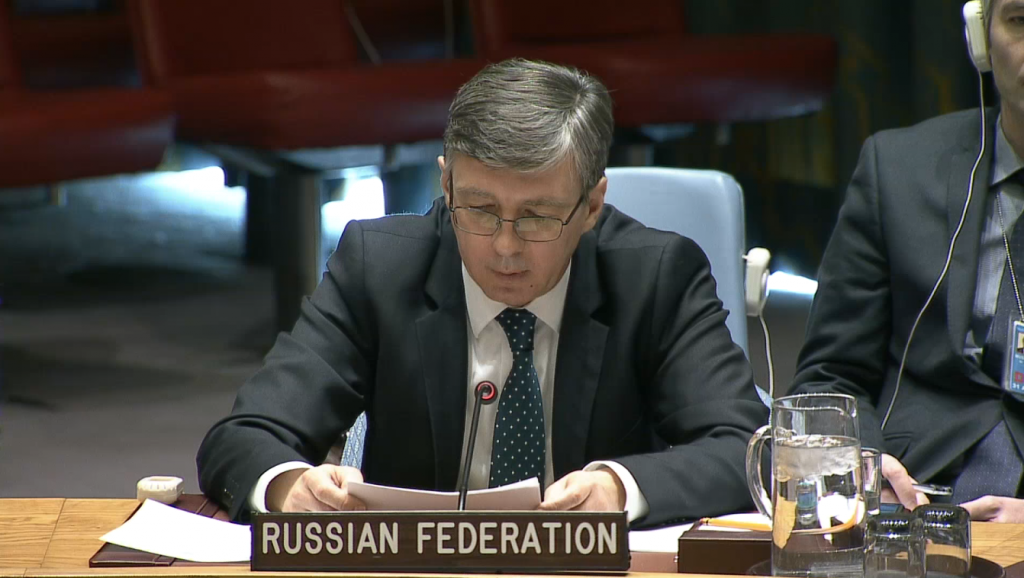Statement by Mr. Evgeniy Zagaynov, Deputy Permanent Representative of the Russian Federation to the United Nations, at the Security Council on threats to international peace and security caused by terrorist acts
Unfortunately, terrorist attacks using suicide bombers brainwashed by hatred continue across the globe in many cities. Last month, the casualties of these bloody crimes included citizens in Saint Petersburg, and Copts and Orthodox Christians in Egypt were attacked. Recently, concert-goers in Manchester were subject to such attacks. Unfortunately, the list of these attacks could go on for some time. In this and many other cases, suicide bombers are guided by an ideology of violence that is totally disconnected from any religion or shared human values. This is a targeted ideology skilfully propagated by the Islamic State in Iraq and the Levant (ISIL), Jabhat Al-Nusra and other terrorist organizations. These thugs utilize the Internet and social networks, which are the means of choice used by young people
We have consistently called for the improvement of the toolkit to counter terrorist narratives. Our delegation voted in favour of the adoption of resolution 2354 (2017), reiterating the international comprehensive framework here, and was a sponsor of the resolution. We should like to thank the delegation of Egypt for its initiative last year to draw up the framework.
We think that the document prepared by the Counter-Terrorism Committee (S/2017/375, annex) also reflects in a balanced manner existing ideas of the Council and Member States on the matter of countering incitement to terrorism and fortifying such ideas with relevant recommendations.
One of the most important elements of the resolution is the list of principles that should guide such efforts. First and foremost, these are the principles enshrined in the Charter of the United Nations, including the inadmissibility of interference into the internal affairs of States. As we have seen in practice, disregard for these principles, including to carry out various geopolitical schemes, plays into the hands of terrorists.
The resolution enshrines the frontline role of States in counterterrorism. Of course, when necessary and in the light of national priorities, civil-society bodies could participate in this work, as well as religious and education institutions. As is rightly noted in the very framework, a pivtoal deterrent to terrorism and terrorist narratives is the implementation of comprehensive lawenforcement measures. Here, we believe that ample capacity could be tapped to improve the international legal basis for counterterrorism.
The adoption today of resolution 2354 (2017) cannot be seen as the final outcome of the Council’s work to counter terrorist narratives. On the contrary, we are of the view that the creation of a framework allows us to better understand the tasks before the Council in this sphere. There is a need to improve the legal and sanctions toolkit enshrined in Security Council resolutions, including criminalizing the public justification of terrorism and spread of materials of a terrorist nature, establishing relevant sanction criteria and strengthening international cooperation in this field.
We think that this type of endeavour would not run counter to prevalent human rights standards. On the contrary, tackling these challenges would ensure one of the most important of them — the right to life. Without firm and effective measures to counter terrorist narratives, we will not get rid of suicide bombers or other phenomena. We stand ready to engage in that regard.
